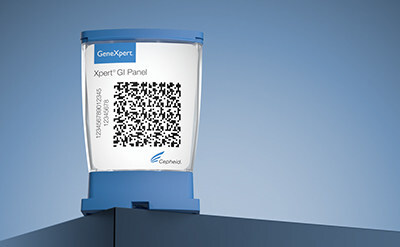The US Food and Drug Administration (FDA) has approved argenx SE’s Vyvgart Hytrulo (efgartigimod alfa and hyaluronidase-qvfc) for the treatment of chronic inflammatory demyelinating polyneuropathy (CIDP), a rare autoimmune neuromuscular disorder of the peripheral nervous system, in adults. Vyvgart Hytrulo is a coformulation of efgartigimod alfa, a neonatal Fc receptor blocker and hyaluronidase, an endoglycosidase.
Previously approved for generalized myasthenia gravis (gMG) in adults who are anti-acetylcholine receptor (AChR) antibody positive, Vyvgart Hytrulo is now available for CIDP patients as weekly 30-to-90 second subcutaneous injections.
Vyvgart Hytrulo binds to neonatal Fc receptors (FcRns) leading to a decrease in the levels of pathogenic immunoglobulin G (IgG) autoantibodies (antibodies made by an individual’s own immune system) in the circulation. This reduction in IgG helps alleviate autoimmune conditions such as gMG and CIDP. The hyaluronidase component helps absorb and disperse efgartigimod when administered subcutaneously.
In argenx’s press release on Vyvgart Hytrulo’s approval, chief medical officer Dr. Luc Truyen said, “Patients have been waiting, and today argenx is delivering the first innovative treatment for CIDP in more than 30 years,” noting the precision mechanism of Vyvgart Hytrulo and the transformative potential of FcRn blockers in the treatment of IgG-mediated autoimmune diseases.
Related: argenx’s CIDP Commercial Highlights the Impact of New Treatments on Patient Lives
“While CIDP patients face many daily concerns and challenges, fear of disease progression should not be one of them. CIDP can be debilitating and have significant impact on quality of life, and many patients with CIDP require treatments that may be burdensome,” commented Lisa Butler, executive director at the GBS|CIDP Foundation International, a global nonprofit supporting rare autoimmune disease patients.
Current treatments for CIDP have primarily included corticosteroids and plasma-derived therapies like intravenous immunoglobulin (IVIg). While these treatments can be effective for many patients, they often come with significant challenges. For instance, IVIg treatments can require long infusion times and frequent hospital visits.
For healthcare providers and patients, having an effective alternative like Vyvgart Hytrulo can make a significant difference in treatment plans and overall quality of life. “The approval of this promising new treatment option for CIDP may provide hope to patients that they can treat their disease beyond just managing symptoms,” added Butler in the same press release.
What Is CIDP?
Neuropathy is a condition characterized by damage to the nerves. In polyneuropathy, several nerves in different parts of the body are damaged or affected. CIDP is a debilitating, immune-mediated disorder that affects the peripheral nerves. It primarily targets the myelin sheaths, which are protective coverings on nerve fibers.
Symptoms include progressive weakness in the arms and legs, numbness and tingling, balance issues and difficulty walking. Patients often experience a range of disabling mobility and sensory issues, including trouble standing from a seated position, pain and fatigue and frequent tripping or falling. Many patients become wheelchair-bound and are unable to work as the disease progresses.
CIDP typically strikes people in their 50s and 60s and is more common in men than women.
XTALKS WEBINAR: Patient Centricity in Neurodegenerative Diseases
Live and On-Demand: Thursday, July 11, 2024, at 11am EDT (4pm BST/UK)
Register for this webinar today to understand how to integrate patient-centric approaches in clinical research for neurodegenerative diseases.
Vyvgart Hytrulo Clinical Trials
The effectiveness of Vyvgart Hytrulo for CIDP was confirmed in the ADHERE study, the largest clinical trial to date studying CIDP. The study began with an open-label period (stage A) to identify patients who improved with Vyvgart Hytrulo, followed by a randomized, double-blind, placebo-controlled withdrawal period (stage B). In stage B, 221 patients were randomized to receive either Vyvgart Hytrulo (n=111) or a placebo (n=110) through weekly subcutaneous injections.
Sixty-nine percent of patients treated with Vyvgart Hytrulo showed evidence of clinical improvement, including improvements in mobility, function and strength. Ninety-nine percent of trial participants elected to participate in the ADHERE open-label extension.
While Vyvgart Hytrulo offers promising benefits, it’s important to be aware of potential side effects. During clinical trials, some patients experienced hypersensitivity reactions like rash, swelling, shortness of breath and itchy welts. The adverse reaction rates for CIDP patients were similar to those seen in gMG patients treated with Vyvgart, with common reactions including respiratory tract infections, headaches and urinary tract infections. Injection site reactions were also noted in over 15 percent of CIDP patients.
Other Treatments for CIDP
The approval of Vyvgart Hytrulo is part of a broader effort to improve CIDP treatment options. Numerous ongoing clinical trials and recent FDA approvals are focusing on finding new and better ways to treat this challenging condition.
Takeda’s Gammagard Liquid, an IVIg therapy designed to improve neuromuscular disability and impairment in adults with CIDP, was approved in January 2024. The approval was supported by data from the Phase III ADVANCE-CIDP open-label study, which demonstrated the safety and efficacy of Gammagard Liquid as an IV therapy. It is the only IVIg therapy approved for multiple neuromuscular disorder indications in the US.
Takeda’s HyQvia, also approved in January 2024, is a combination of immunoglobulin (IG) and hyaluronidase, making it a facilitated subcutaneous IG infusion. HyQvia is indicated for maintenance therapy to prevent relapse of neuromuscular disability and impairment in adults with CIDP. In recent long-term data from the Phase III ADVANCE-CIDP 3 clinical trial, HyQvia demonstrated favorable long-term safety and tolerability, along with a low relapse rate, supporting its use as an effective long-term maintenance treatment for CIDP.
Janssen’s nipocalimab is an investigational monoclonal antibody that received Orphan Drug status in 2021 for the treatment of CIDP. Nipocalimb is currently undergoing Phase II/III, multistage trials to evaluate the safety and efficacy in delaying relapse in CIDP patients. This drug is also being studied (and granted key designations) for various other conditions, including gMG, hemolytic disease of the fetus and newborn (HDFN) and fetal neonatal alloimmune thrombocytopenia (FNAIT). Both nipocalimab and Vyvgart Hytrulo act on the FcRn to reduce IgG levels.
Sanofi’s complement C1s inhibitor, riliprubart, has shown encouraging efficacy and safety in a Phase II study for CIDP. The study demonstrated a rapid and durable reduction of key biomarkers associated with the classical complement pathway and nerve cell damage. These results highlight riliprubart’s potential as a first-in-class treatment for CIDP, with two global Phase III studies now underway.
The landscape of CIDP treatment is evolving, with each new and developing treatment offering unique benefits and administration methods. Researchers continue to explore new approaches that enhance patient care and address different needs and preferences.












Join or login to leave a comment
JOIN LOGIN